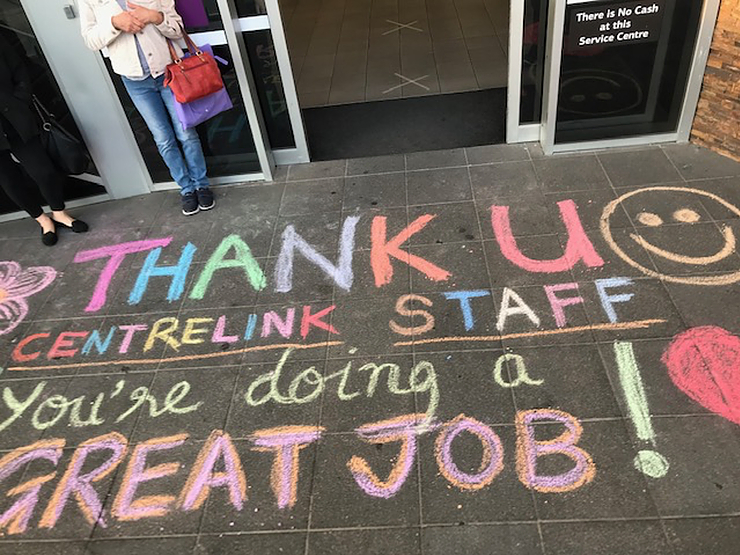Post
Kleu
- Apr 10
Protecting the Mental Health of Frontline Employees
It has always baffled me that front line employees in Australia are some of our lowest paid workers. They do one of the most challenging jobs, receive very little if any training to cope with the emotional labour aspect of their roles and not surprisingly, have higher rates of sick leave, staff turnover and mental health concerns. As we navigate the Covid-19 crisis, it's these employees we are relying on for support and it's critically important we take proactive steps to provide them with the emotional fitness skills required.

Emotional labour is the process of managing feelings and expressions to fulfill the emotional requirements of a job [1]. The greater the emotional labour component of the role, the greater the potential stress and risk of psychological injury.
Even before the Covid-19 crisis, Australia was struggling with an increasing burden of mental health concerns in our workforces and community, with a huge cost to the economy. In 2019, the Australian Productivity Commission [2] estimated the annual cost of this be $180 billion per year. If I've done the the maths correctly on this, it equates to a whopping $7000 per person.
The current Covid-19 crisis is likely to exacerbate this further and workplaces have an important role to play in reducing the impact; by the way they lead, engage and equip their employees at this time, starting with those on the front line serving the community.
6.7 million (53%) of Australia’s 12.8 million employees work in the services sector. 4.3 million (64%) are frontline workers in community and personal services, sales and clerical/administration roles. [3]
92 per cent of serious work-related mental health condition claims in Australia are ascribed to mental stress. [4]
Right now our frontline employees are under immense stress. Like each of us, they are worried about their loved ones, own health and financial security. At the same time, their roles servicing the public have taken on a whole new level of emotional labour. We have a responsibility to equip them with the tools to manage this stress and prevent it taking a long-term toll.
Emotional Intelligence (EI) and self-efficacy are positively correlated with mental health [5] and the Australian Government has recognised that early intervention is required to prevent mental illness from developing [6].
"Using EI people can motivate themselves to persist in face of frustration; regulate their moods and delay gratification; regulate their moods and keep distress from swamping their ability to think and empathize and hope." Goleman (1995)
Fortunately, unlike IQ, which is heavily influenced by genetics and early life, EI can be developed. Kleu is a digital program to equip frontline employees with the practical emotional intelligence skills essential to managing stress, empathizing with customers and collaborating to achieve outcomes.
To learn more about how Kleu can help your frontline through this crisis, click here.
[1] Hochschild, Arlie Russell (1983). The managed heart: commercialization of human feeling
[2] Australian Government Productivity Commission, Mental Health, Draft Report, October 2019
[3] # Australian Government labour Market Information Portal - 2019 Industry Employment Projections http://lmip.gov.au/default.aspx?LMIP/GainInsights/EmploymentProjections
[4] Safework Australia, February, 2019. [5] Journal of the Indian Academy of Applied Psychology January 2010, Vol.36, No.1, 61-67
[6] Australian Government Productivity Commission, Mental Health, Draft Report, October 2019
Share Link





